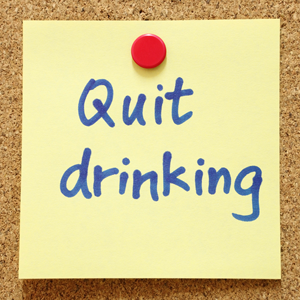
When Pat Heine, a 29-year-old trail runner, cut out booze last January, it was to prepare for the 106-mile (170km) Ultra-Trail du Mont Blanc. “I’d seen other runners quit drinking as a way to focus for big races,” says Heine.
More than a year later, he’s still dry. “I was feeling better physically and mentally.”
Read more: Is drinking every day, even a little bit, going to turn you into an alcoholic?
A 2016 study of adults who did a “Dry January” – meaning they stopped drinking booze entirely for the first month of the New Year – found that up to six months later, they were drinking on fewer occasions and drank less when they did imbibe.
(Now, you might prefer the moderation route if going cold turkey sounds too restrictive. That’s why some people plan on drinking a beer a day instead.)
In 2017, more than 5 million Brits pledged to live booze-free for one month as part of the Dry January campaign, a trend quickly making its way across the pond.
Apart from gleaning better sleep and more energy – well-documented benefits of forgoing alcohol – proponents claim that dumping booze for one month can reverse the negative health impacts of regular drinking, like fatty liver disease and elevated blood sugar.
Great! So a four-week abstinence stint can wash away years of binge drinking and a daily beer habit, right? Well, not exactly.
Read on to find out what downing too much booze does to your body – and whether or not Dry January is really worth it.
How does alcohol affect your body?
Your body breaks booze down in multiple spots, including your stomach and pancreas, but your liver bears the burden of turning alcohol into less damaging forms.
In that process, toxic byproducts lead to inflammation in your pancreas, which could potentially harm your insulin-producing cells and impair your fat metabolism.
This could lead to fatty liver, a silent disease that’s relatively benign in its early stages. (Your liver isn’t the only thing at risk: drinking too much can damage your entire body, including your heart, skin, penis and muscles.)
Read more: This is how drinking beer affects your muscle and fitness gains
Even though fatty liver is common in those that drink at or above the guidelines (“moderate” is defined as no more than two drinks per day for men), there is evidence that it’s reversible when you abstain from alcohol or even drink less, says Dr Rotonya Carr, hepatologist at the Hospital of the University of Pennsylvania.
With continued drinking, about a third of people with fatty liver go on to develop alcoholic hepatitis, or inflammation of the liver, which eventually leads to scarring and the life-threatening condition of cirrhosis in 10 to 20% of patients.
Even in these advanced stages, research suggests that giving up alcohol can reverse scarring and improve the chance of survival.
“The liver is a very forgiving organ,” adds Dr Carr, “it can heal itself when the insult, in this case alcohol, goes away.”
So, can giving up alcohol for a month reverse the damage?
The catch: It’s going to take more than one month to completely heal your liver and the rest of your body, points out Aaron White, PhD, senior scientist at the National Institute of Alcohol Abuse and Alcoholism.
“But taking a month off from drinking is never a bad idea, and is a great time to evaluate your relationship with alcohol,” says White.
Read more: How to detox your skin after overdoing the alcohol, sweets or salt
We don’t often realise how much we drink, or, say, how much we depend on a nightly beer or weekend bender to relax. While drinking in moderation isn’t all bad – and is, in fact, associated with a reduced risk of heart disease and death – taking time off may help you drink less the rest of the year.
In fact, research suggests it will positively impact your drinking choices following the challenge.
One word of caution, though. If you are a chronic heavy drinker going cold turkey, pay attention for symptoms like insomnia, agitation, sweating and anxiety. This could signal withdrawal, a potentially life-threatening situation that needs medical supervision. In that case, it’s best to talk to your doctor first.
This article was originally published on www.menshealth.com
Image credit: iStock




 Publications
Publications
 Partners
Partners










